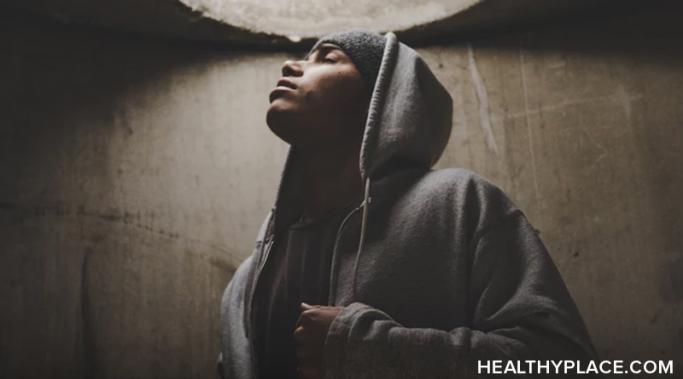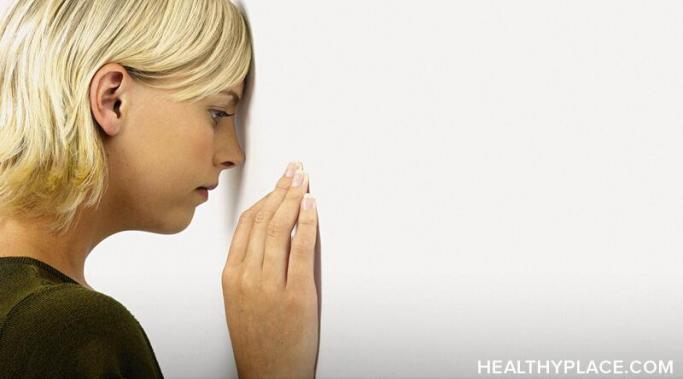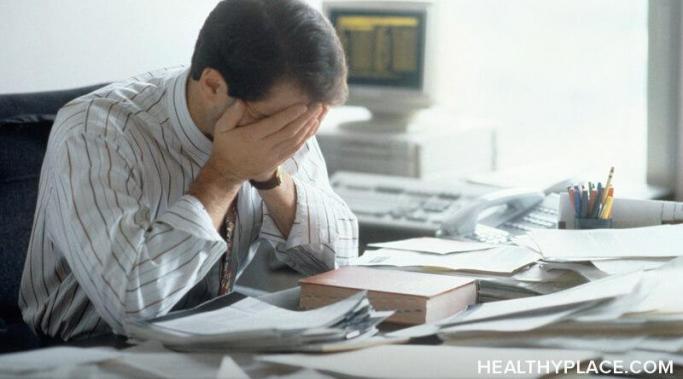Do you think you can deal with bipolar disorder alone? Do you think you can keep your bipolar a secret and just do what it requires by yourself? If so, you're not alone. Many people try, sometimes for years, to handle bipolar disorder alone. They do Google searches and online research about bipolar and its treatments and somehow that makes people think they can do it on their own. But I have news for you: you can't deal with bipolar disorder alone.
About Natasha
Some with bipolar disorder appear high-functioning online. I'm one of them, according to some of those who follow me. But high-functioning bipolar online is not the same thing as high-functioning bipolar in life. Read on to learn about what high-functioning bipolar disorder really is and how it looks online and in-person.
Medical consensus in psychiatry is critical. Many people do have many opinions, of course, but understanding psychiatric medical consensus is what makes all the difference. If you have 1000 psychiatrists in a room, after all, you can be guaranteed someone is going to disagree on any subject, but who do you believe, the 999 or the one? And is a medical consensus in psychiatry worth more than the opinion of psychiatric patients?
At one time, I was obsessed with my own suicide. This isn't a particularly pleasant admission or memory, but it's true. Thoughts of suicide would run through my head every single day. And to be clear, this suicide obsession, wasn't simple teen ennui or just mere "thoughts" that were transienty. It was very distressing and mostly out of my control.
I have bipolar disorder, but I'm not a bipolar survivor. I am a psych patient, but I'm not a psych patient survivor. Which is to say that I am surviving a life as both, but I don't feel the need to take the word "survivor" as my own. I find tacking the word "survivor" after everything unnecessary and clunky. It strikes me as being a cry for external validation that I just don't require. I'm not a "bipolar survivor" or "psych patient survivor" and that's okay.
People judge how I cope with bipolar. Judging people is an Internet thing and it's a human thing. People just seem to feel free to tell me that how I live my life and how I deal with my bipolar disorder is wrong. I get it, I put myself out there, so that's what happens. Unfortunately, I suspect it happens to a lot of people with bipolar disorder. People just want to judge our bipolar coping skills.
I've found hope is harmful. I know, the reflex is to disagree with this, but, at least in my case, hope is harmful. I recently found a bit of hope of ending a profound, debilitating depression. I knew feeling that hope was a mistake, but some part of my brain refused to listen to that. And sure enough, it turned out that hope was harmful.
Bipolar has a definite effect on one's career. Bipolar can alter a career, derail a career or even, in some cases (like mine), create a career. I have yet to meet a person whose career has not been affected by his or her bipolar disorder.
Rejection just because you have bipolar disorder sucks. Even I, who have been publically bipolar for almost a decade still find it hurtful when someone rejects me because of my bipolar disorder. I know that rejection hurts everyone, but I think many people would be amazed at how hurtful it is to be rejected because of something that isn't your fault and that you can't control. It's like being rejected because of your height or your mother tongue -- these are things that are just part of you and being rejected because of them feels incredibly, personally painful.
I've been considering the idea that suicide attempts are underreported. The theory of this is simple, the only way a suicide attempt gets reported is if a person gets medical help for it and admits to it but how many people have attempted suicide and not gotten medical help for it or have denied that it was a suicide attempt? I know one person -- me. I didn't get help for my suicide attempt. My attempt isn't part of the statistics about suicide attempts in bipolar disorder. So are suicide attempts underreported in general? (Note: This post contains a trigger warning.)









